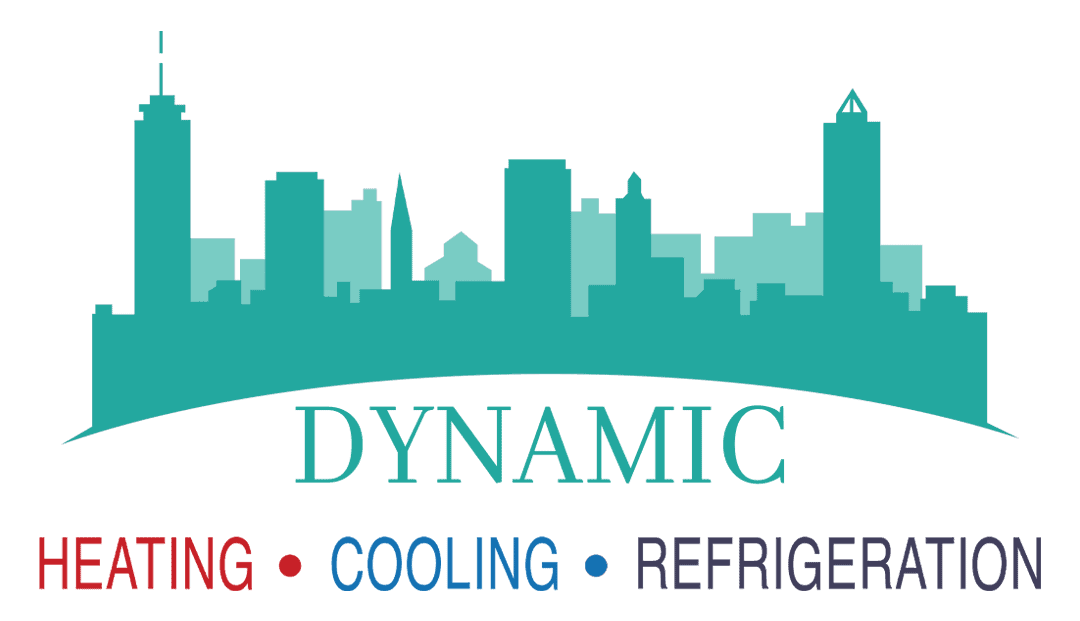As the winter chill sets in, keeping your garage warm and comfortable becomes a priority. Whether you use your garage as a workshop, a storage space, or simply to keep your car cozy, investing in the right garage heaters can make all the difference.
In this comprehensive guide, we’ll explore the various options available for heating your garage. We will explore electric heaters for garage spaces, gas garage heaters, and more to help you find the perfect solution to beat the cold.
Types of Garage Heaters
When it comes to keeping your garage warm during the colder months, there are several types of garage heaters to choose from, each with its own set of benefits and considerations. Understanding the features and advantages of each type will help you make an informed decision and ensure your garage stays comfortable all winter long.
Electric Heaters for Garage
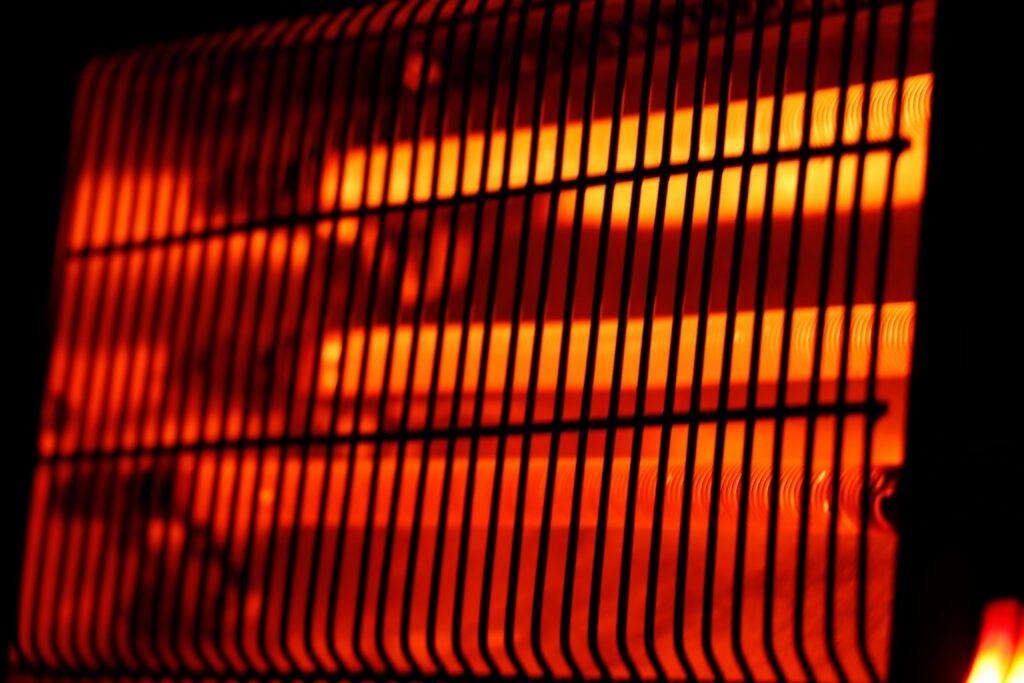
Electric heaters are a popular choice for heating garages due to their ease of installation and use. Electric heaters for garage spaces are ideal for those who prefer a low-maintenance and safe heating solution.
They don’t produce combustion gasses and typically come with safety features like automatic shut-off and overheat protection. Additionally, electric heaters are versatile and can be easily moved or repositioned as needed, making them suitable for various garage layouts and uses.
Infrared Heaters
These heaters emit infrared radiation that directly warms objects and people, providing quick and efficient heat. They’re ideal for spot heating and reducing energy costs. Infrared heaters are especially beneficial for garages used as workshops or for activities that require targeted warmth.
Fan-Forced Heaters
These heaters use a fan to circulate warm air throughout the garage, providing even heat distribution. They’re suitable for larger spaces and can quickly raise the temperature to comfortable levels. Fan-forced heaters are a great option for garages used for storage or as multipurpose spaces.
Radiant Heaters
Similar to infrared heaters, radiant heaters emit warmth directly to objects and surfaces, creating a comfortable environment without circulating dust or allergens. They are perfect for garages with limited ventilation or for those looking to avoid stirring up dust and debris.
Gas Garage Heaters
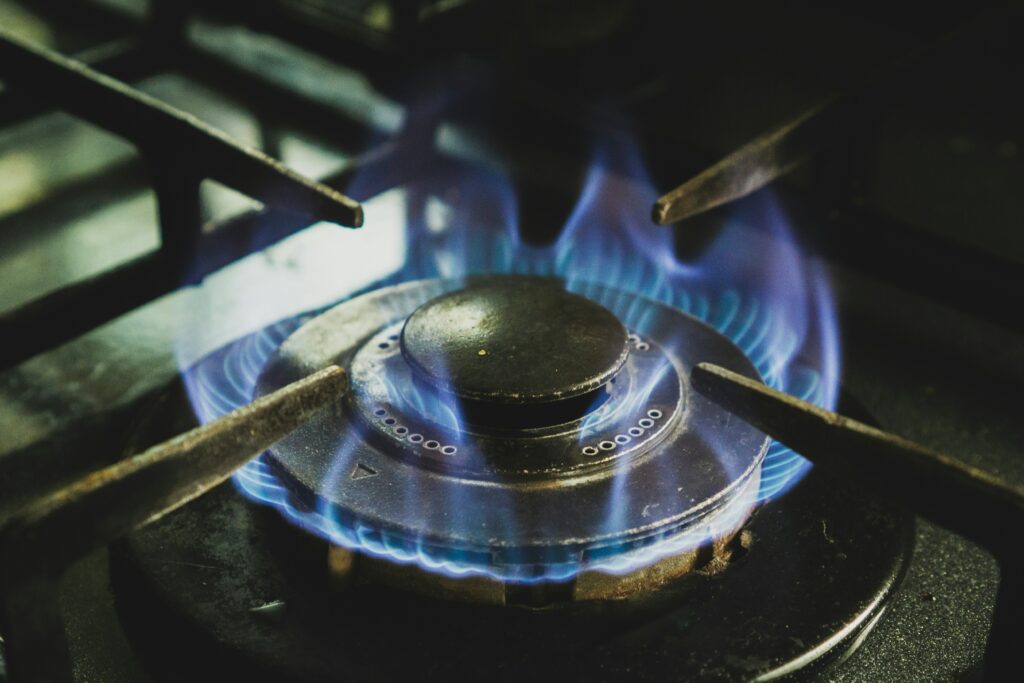
For those looking for a more powerful heating solution, gas garage heaters are an excellent choice. Both natural gas and propane garage heaters require proper ventilation to ensure safety, as they produce combustion gasses that need to be expelled outside. It’s essential to have a well-ventilated garage and to follow all safety guidelines when using gas heaters.
Natural Gas Garage Heaters
Connected to your home’s natural gas supply, these heaters are cost-effective for long-term use and can efficiently heat large spaces. Natural gas garage heaters are ideal for those with access to a natural gas line and looking for a reliable and economical heating solution.
Propane Garage Heaters
Ideal for areas without natural gas access, propane heaters offer portability and flexibility. They’re perfect for heating detached garages or workshops. Propane garage heaters are a convenient choice for those who prefer the ease of using propane tanks and need a portable heating solution.
Propane heaters are known for their quick heating capabilities and can provide warmth to your garage space in a short amount of time. They are ideal for those who use their garage intermittently and need a fast and efficient heating solution. Additionally, propane garage heaters are often designed with safety features such as tip-over switches and oxygen depletion sensors, ensuring a safe and comfortable environment in your garage.
How to Choose the Right Heater for Garage in Your Home

When selecting the ideal garage heater for your space, it’s essential to consider various factors to ensure optimal performance and safety. Here’s a closer look at what to keep in mind:
Size of Your Garage
The size of your garage is a critical factor in choosing the right heater. A heater that’s too small won’t effectively warm the entire space, while an oversized heater can lead to unnecessary energy consumption. Measure your garage and consult with a professional to determine the appropriate heating capacity for your needs.
Insulation
A well-insulated garage retains heat more efficiently, reducing the demand on your heating system. Check the insulation in your walls, ceiling, and garage door, and consider upgrading if necessary to improve energy efficiency and reduce heating costs.
Ventilation
Proper ventilation is crucial, especially for gas and propane heaters, to prevent the buildup of harmful fumes and ensure safe operation. Make sure your garage has adequate ventilation and that your heater is correctly vented to the outdoors.
Safety Features
Safety should always be a top priority. Look for heaters equipped with automatic shut-off, overheat protection, and other safety features to minimize the risk of accidents and ensure a safe heating experience.
Installation and Maintenance
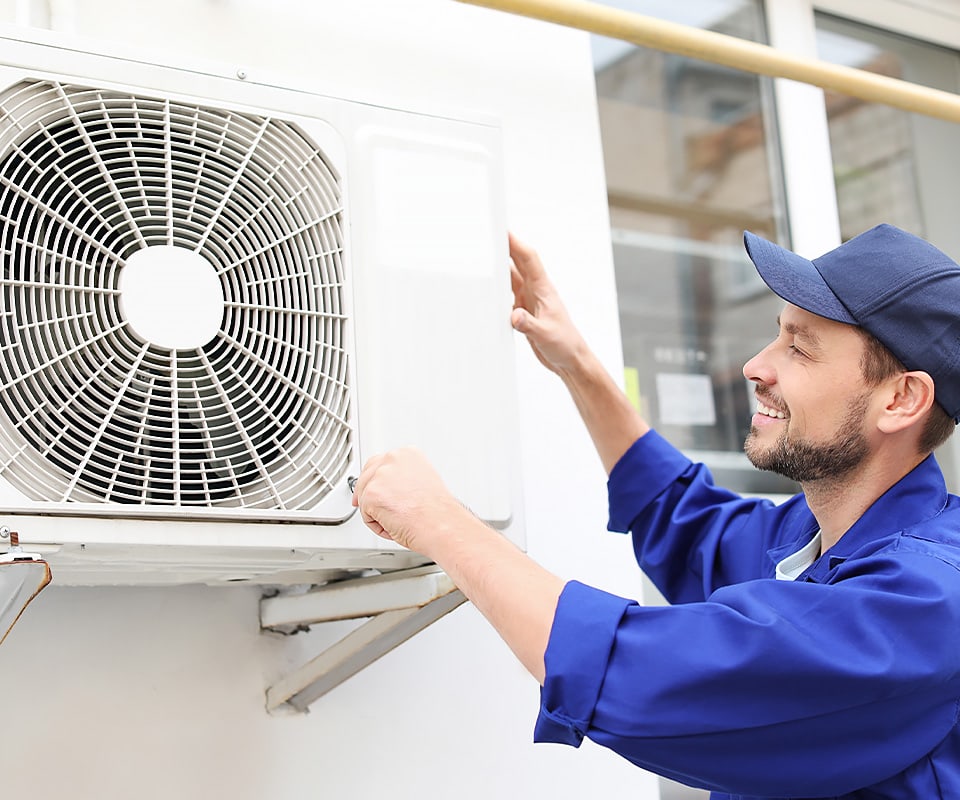
By ensuring proper installation and maintenance, you can choose the right garage heater for your space and enjoy a warm and comfortable environment all winter long:
Installing Electric Heaters for Garage Use
Electric heaters are generally easier to install than gas heaters, as they don’t require venting. Many models can be simply plugged into a standard electrical outlet, making them a convenient option for DIY installation.
Installing Gas Garage Heaters
For gas heaters, professional installation is essential to ensure proper venting and adherence to safety regulations. A qualified technician can correctly install your heater and ensure it operates safely and efficiently.
Garage Heaters Maintenance
Regular maintenance is crucial for all types of garage heaters to ensure efficient and safe operation. Schedule annual inspections and cleanings to keep your heater in top condition, and replace filters or parts as needed to maintain optimal performance.
Energy Efficiency and Cost Considerations

When selecting garage heaters, it’s important to consider both energy efficiency and the cost of operation. Electric heaters, while convenient and easy to install, are typically more expensive to operate than their natural gas or propane counterparts.
However, investing in an energy-efficient garage heater can lead to significant savings in the long run. To make an informed decision, consider the cost of fuel in your area. If natural gas is readily available and affordable, a natural gas garage heater might be the most cost-effective choice.
On the other hand, if you have easy access to propane, a propane garage heater could offer a balance of efficiency and convenience. For those without access to gas or who prefer a simpler setup, an electric heater for the garage remains a viable option, despite the higher operating costs.
Can I Connect My Furnace to Heat My Garage?
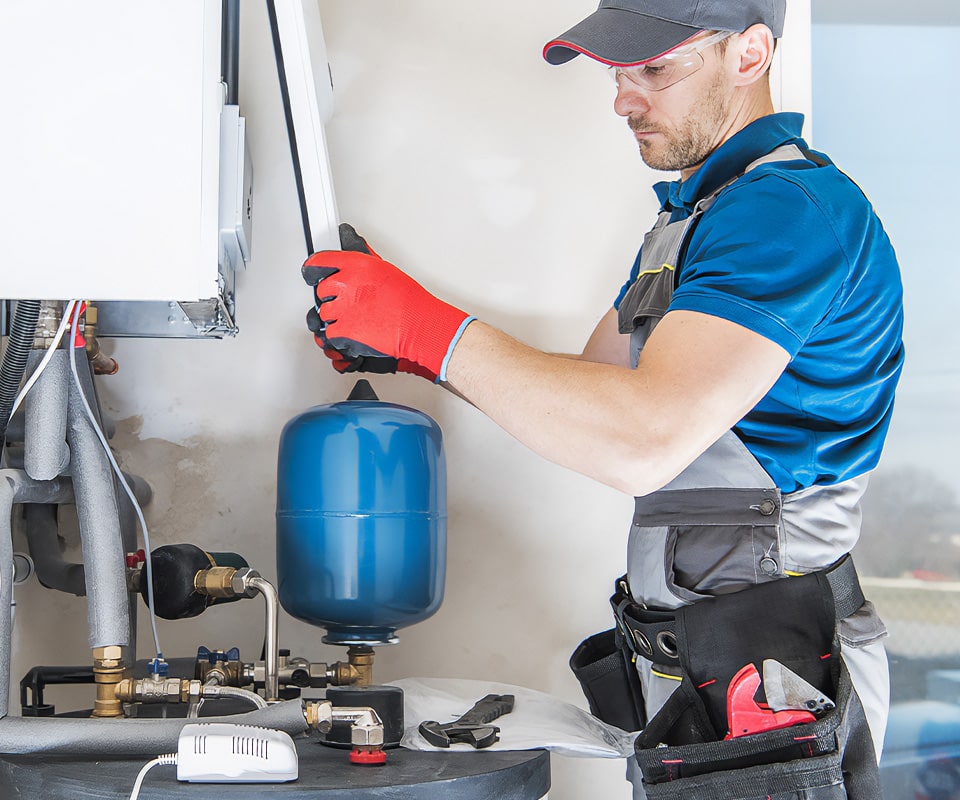
In Canada, it is generally prohibited to use a home/garage furnace to heat both a living space and a non-living space, such as a garage. This regulation is in place to prevent the risk of exhaust fumes from vehicles or other sources in the garage being circulated into the living areas of the home via ducts, which could pose serious health hazards.
If you’re looking to heat your garage, it’s advisable to install a separate heating system specifically designed for that space. Consulting with a professional HVAC inspection, repair and maintenance company like Dynamic Heating and Cooling can provide you with the best options for safely and efficiently heating your garage.
To learn more about your home’s HVAC system, water filter systems, and other information relating to home upgrading, heating and cooling, visit our blog.
Safety Tips for Using Garage Heaters
Safety is paramount when using garage heaters, regardless of the type. Always adhere to the manufacturer’s instructions for installation and use to ensure safe operation. Keep any flammable materials well away from the heater to prevent fire hazards.
If you opt for a gas or propane heater, installing carbon monoxide detectors in your garage is crucial to monitor for any potentially dangerous gas leaks. Additionally, never leave a heater running unattended. Always turn it off when you’re not in the garage to avoid any accidents or unnecessary energy consumption.
Integrating Garage Heaters with Your Home’s HVAC System
When considering garage heaters, it’s essential to recognize their role within the broader context of your home’s HVAC system. A well-chosen garage heater not only provides direct warmth to your garage space but also contributes to the overall comfort and energy efficiency of your home.
By integrating a garage heater that complements your existing HVAC setup, you can create a seamless climate control experience throughout your property. This holistic approach ensures that your garage remains a comfortable extension of your living space while also maintaining optimal energy usage and indoor air quality across all areas of your home.
Keep Your House Warm with Dynamic Heating and Cooling
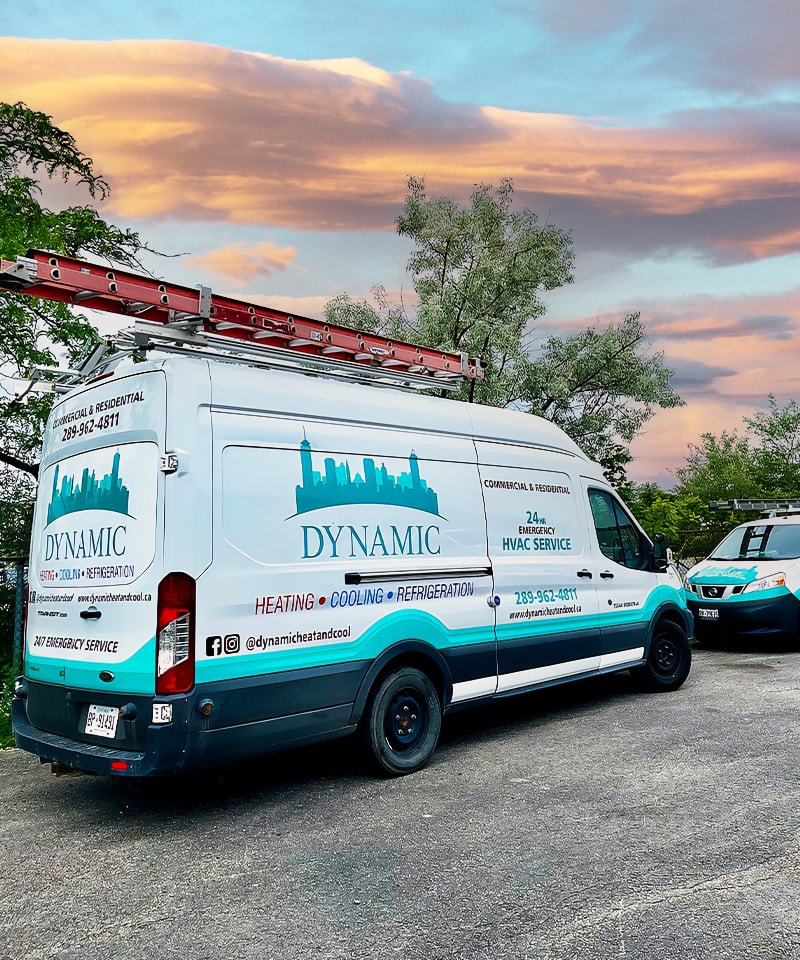
For expert advice on HVAC systems and maintaining the warmth and comfort of your home, contact Dynamic Heating and Cooling. Our team is dedicated to providing top-notch service and solutions tailored to your needs. Contact us today to ensure your home stays cozy and comfortable all year round.
